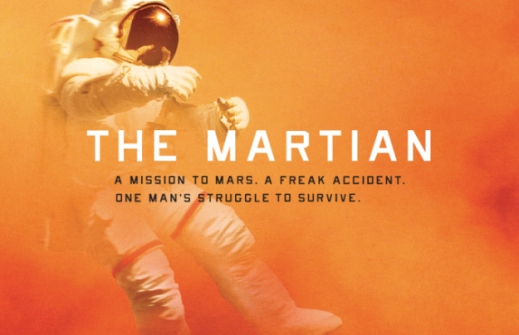A bit late to the Save-Mark-Watney Party
November 15, 2015 Leave a comment
When a friend of mine first suggested I read Andy Weir’s The Martian and advertised it with the goofiest quotes she could find in the text, I wasn’t sure what I was getting myself into. I did, however, decide to pick it up eventually and make sure I read it before I go see the movie. And it was an interesting read. Other than being quite entertaining and the narrator’s cynically infantile humor catering to my inner 14-year-old, the text mainly impressed me with being a problem-solving novel.
Mark Watney is not a hero. Mark Watney is a goofy botanist stranded on a planet where nothing grows–until potato farm. It is not a story where problems resolve themselves conveniently so the narrative can move forward to the next shallow issue. In fact, the psychology of The Martian is such that the core issues like the obvious lack of resources and the constant need to repurpose equipment do not work as distractions but instead form the operative framework of the story itself. After a few dozen pages I had accepted the hostile situation Watney was in as something he was not getting out of any time soon. Once this was established, the story was set to bloom. It is the contrast between the oppressive premise and the mostly light tone of the text that makes it truly stand out.
The main issue I had with The Martian is rooted in its key logic: If Watney dies, the story is over. Mark Watney essentially is the story. Therefore, and in spite of all problems the likable botanist, physicist, chemist, Robinson Crusoe etc. runs into, it is clear that he must survive until the very end. This is not exclusively bad, but it takes much weight off the text and greatly contributes to its light-hearted nature. While it remains interesting throughout whether or not Watney will survive in the end, the story does converge at all times toward the final rescue attempt.
The movie remains largely faithful to the novel, although it lacks the richness of detail because–obviously–they couldn’t put everything in it, and the text is nothing if not multi-faceted and rich. One major complaint I was made aware of by friends is that those who had seen the movie but not read the book often did not understand what Watney was doing and why. Perhaps a director’s cut would be in order, one that benefits more from the text’s inventiveness. Definitely the greatest crime to movie commits on the novel is the fact that the dialogues were largely defused to make the affair more family friendly. I understand that the objective was to get a PG-13 rating, and that they certainly wouldn’t have gotten away with a lot that Andy Weir wrote, but the sharp edginess of the dialogues and strong language used by the characters does illustrate them better than the adaption achieves to.
If haven’t seen the movie yet–which everyone probably has and why I’m late to the party–go see it. If you want to go see the movie, read the book first. No discussion. Both are a great experience, but as it often tends to be, you get more out of the movie when you’ve read the book. Should you have seen the movie and liked it, yet for some unfathomable reason not read the book yet, go get it now. It’s a highly entertaining science-fiction story which has been rightfully praised on many accounts.

You must be logged in to post a comment.